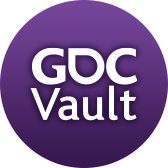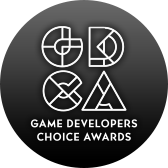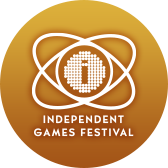| February 2015
In This Issue:
- Google Play - Bob Meese, global head of games business development at Google Play, talks about his current strategy for games, about how developers can make their Android TV games successful, and about the best way devs can get Google's attention.
- Wargaming - Jay Cohen, general manager of Wargaming America, discusses what it takes to successfully move a game from one platform to another, where eSports is headed in 2015, and why becoming a GDC Diamond Partner has become an important part of his marketing strategy.
- Oculus - Palmer Luckey, founder of Oculus, chats about why developers should be interested in the Oculus Rift Crescent Bay prototype technology, about the 50-plus open positions on the Oculus Web site, and about the sessions Oculus is sponsoring at GDC SF 2015.
 |
 Bob Meese | Bob Meese, global head of games business development at Google Play, talks about his current strategy for games, about how developers can make their Android TV games successful, and about the best way devs can get Google's attention. |
Q: Bob, what is Google’s current strategy for games?
Bob Meese: We have several gaming initiatives at Google, including projects within Android and Google Play, ads and analytics, and even within new projects like Cardboard and virtual reality.
I lead games business development for Android and Google Play, and we want to be the platform that connects the most people through gaming across device form factors -- including phone, tablet and TV --and across geographies, with more than 1 billion people using Android devices every month globally.
We try to stay as focused as possible on game developer needs. For example, we created the Google Play beta testing program in response to developer suggestions to help developers get ready for launch by facilitating feedback from players. Developers have described player feedback from Google Play beta testing as “invaluable.” We offer other services like Google Play Game Services, including popular features like saving game progress across devices, and upcoming features like advanced analytics about player behavior.
We also want to enable developers to integrate Google services into their games as easily as possible. One example is the addition of the Google Mobile Ads SDK to Google Play Services so that developers don’t need to integrate a separate ads SDK. Also, plug-ins and extensions are available for many leading game engines to enable developers to more easily integrate Google Play Game Services into their games.
Q: What’s the latest on Android TV? Can you give me some updates?
Meese: We’re excited by the early progress with Android TV. More Android TV devices are coming to market this year, and we’re excited to see our Android TV partner, Razer, win “Best Gaming Product” at CES 2015 for its Forge TV.
We have a high-quality, well-rounded mix of titles now available to suit every type of gamer, and we’re actively adding more games to the catalog. Developers who are excited about getting their games onto TV are optimizing their titles for the living room. Infinite Dreams, for example, optimized Sky Force 2014 for the landscape orientation and added cooperative multiplayer controller support. We’re also particularly excited about Telltale’s The Walking Dead, Ubisoft’s award-winning Valiant Hearts, Disney’s Castle of Illusion, and Senri’s Leo’s Fortune.
We’re seeing developers experiment with different business models, and have a higher percentage of premium games on TV than we see in our smartphone and tablet gaming ecosystem. We offer developers plenty of information to make their Android TV game a success at developer.android.com.
Q: If a developer wants to get Google’s attention, what is your best advice on doing that?
Meese: There are a lot of developers in this category, but it is possible for anyone to get through to us. First, it’s important that you really care about the product you’re developing. We can tell when developers are passionate about their games, and we want to see developers creating something new rather than taking too much inspiration from existing games.
Next, we look at how well you’ve already incorporated the best practices of Android and Google Play into your game. We provide many resources to help at developer.android.com/distribute, including best practices, checklists, and sample code to help make your game great. We’re looking for developers who are motivated to seek this information out themselves, but who may need some additional help with intermediate or advanced topics.
Finally, our team is growing, and we attend many industry events. Come find us at one of those events, or if you’re looking to connect by e-mail, it can help to get a mutual introduction from another developer who we both know. One of the best parts of my job is finding new developers making high-quality games, so please come out and see us at GDC.
Q: Speaking of which, what are you doing at GDC?
Meese: We’re hosting a Google Developer Day on Monday, Mar. 2 for developers, designers, and business decision makers focused on mobile game development. The Play team will be very well represented at this event, and we’ll have speakers and attendees from many different parts of Google.
During the event, you’ll learn about tools and best practices that help game developers make great games as well as build your businesses. We’ll show you what’s new for Android game developers. We’ll also have some cool code labs where we’ll help you build, for example, an actual cardboard VR game. If you want to speak with our team, our GDC developer day is the best opportunity all year. We’ll also be at our booth (#502), so come see us.
 Jay Cohen | Jay Cohen, general manager of Wargaming America, discusses what it takes to successfully move a game from one platform to another, where eSports is headed in 2015, and why becoming a GDC Diamond Partner has become an important part of his marketing strategy. |
Q: Jay, one of your recent successes was World of Tanks: Xbox 360 Edition which is a free-to-play title for console. Tell me a bit about the game’s success. Is that an area you intend to pursue with additional titles?
Jay Cohen: We launched World of Tanks for the Xbox 360 in February of 2014 and have seen massive success with over five million downloads to-date. It not only marked our first title on console, but also allowed to us to reach a new audience of gamers around the world. Expanding onto new platforms has always been a major focus for Wargaming. We did that for World of Tanks: Xbox 360 Edition and most recently with World of Tanks Blitz on mobile platforms. So the success we’ve found on console has been incredibly reassuring to us. I can’t say where we’ll be heading next, but we’ll always be keeping our eye on new opportunities.
Q: You’ve had a few multi-platform launches this year, including the game we just discussed as well as World of Tanks Blitz for iOS and Android. What does it take to successfully move a game from one platform to another?
Cohen: We started out in 2014 on just one single platform (PC) and, in the last year, we’ve expanded onto three more, including mobile which was no easy task. With the launch of World of Tanks Blitz on iOS and Android, the team spent months extracting the raw elements that make the PC version so successful to deliver a triple-A quality game to mobile and tablet device users around the world.
From a development standpoint, the game is tailored to the needs of a mobile player who is used to much shorter game sessions, a more simplified user interface, and easy and intuitive controls. That’s why, in Blitz, we’ve implemented smaller maps and 7 vs. 7 battles up to seven minutes long (usually between 3-5 minutes on average).
There are very few mobile games on a similar scale of quality and complexity out there, so as far as our development approach was concerned, we tried to be bold and ready for experiments, adaptations, and newer mobile-specific features.
World of Tanks Blitz owes a lot to its predecessor for laying down the foundation that the team has built upon, and there’s still a lot more for our players to look forward to in the future.
Q: At the beginning of the year, Wargaming talked about investing $10 million in its eSports Wargaming.net Leaguestrategy, up from $8 million last year. What is eSports all about and how is that working out for you?
Cohen: We broke out in the eSports scene in 2012 with 30,000 players and skyrocketed to over 250,000 in 2014 with our community being the driving force in this growth. World of Tanks currently has over 100 million players, and with each update we now also focus on gameplay and balance as it relates to our eSports league. These changes allow for more engaging entertainment for both the players and spectators, and help in building the cultural phenomenon that is eSports today.
With our success, we are also aiming to create an ecosystem to cultivate professional development between our players and their teams. Not only do we want to support the advancement of the Wargaming.net League, we also want to make sure that these athletes are given the tools and skills to find partners and brand sponsors for their teams.
We have big plans for 2015 and can’t wait to see how eSports continues to evolve within the industry.
Q: Wargaming is a Diamond Partner of GDC 2015. What does that achieve for Wargaming and why is that important to you?
Cohen: As our portfolio of titles continues to grow, we must also focus on our own development as a company. Joining the GDC Diamond Partner program was a natural fit to combat those needs.
The benefits of the program give us the exposure we need to reach top talent through higher visibility on promotional materials, networking opportunities, and exclusive access to events.
But, most importantly, being a Diamond Partner is about supporting the gaming development industry as a whole. GDC is an invaluable event for sharing ideas, collaborating on new ones, and getting a deeper understanding of the roles we play in this truly exciting industry. Having Wargaming be a Diamond Partner, we hope, shows that we’re not just committed to delivering great games, but also in helping foster and grow this entire industry.
 Palmer Luckey | Palmer Luckey, founder of Oculus, chats about why developers should be interested in the Oculus Rift Crescent Bay prototype technology, about the 50-plus open positions on the Oculus Web site, and about the sessions Oculus is sponsoring at GDC SF 2015. |
Q: Palmer, at the 2015 Consumer Electronics Show in January, Oculus showed off for the first time its Oculus Rift Crescent Bay prototype along with Gear VR Innovator Edition and mobile VR content. Tell me a bit about those technologies and why developers should be interested in them.
Palmer Luckey: Crescent Bay is largely representative of the technology that will be in the consumer Rift low-latency 6DOF tracking (critical for feeling present in a virtual space); 90-hz, low-persistence OLED displays (eliminating motion blur and greatly increased visual stability); and integrated audio hardware that is optimized to work with our 3D audio SDK.
At CES, we were also showing Gear VR Innovator Edition with the same 3D audio SDK, and spending a lot of time talking to devs about why 3D sound is so much more important for VR than traditional gaming. It's never been possible to properly model audio response for head translation and position with traditional monitors, and we’re excited about the possibilities.
Q: I’m guessing you’ll have something new and different to show off at GDC SF 2015 with the Oculus Rift. Care to give us a hint?
Luckey: We’ll be showing a lot of different things in our booth (#1224) at the show. We have a couple of sponsored sessions as well where we'll be sharing information about the Oculus Rift and the Samsung Gear VR Innovator Edition. All of the information about those sessions can be found on the GDC Web site.
Q: What are you plans on the mobile side with Samsung Gear VR at GDC? What can you share?
Luckey: No specifics to share just yet, but we've learned a lot from the launch of Innovator Edition, and we'll be talking more about the future of mobile VR at GDC.
Q: Oculus has over 50 open positions on its Web site, mainly in software and hardware engineering and in content. What sort of people are you looking for and why should they beexcited about applying for a spot in either your Menlo Park, CA or your Seattle site?
Luckey: We're always looking for the best and brightest, especially as we draw closer to the consumer launch of the Rift. In the past, we've been primarily focused on hiring hardware and software engineering, but now we’re hiring for almost every discipline required to launch an incredible consumer product. Come help us build the future!




